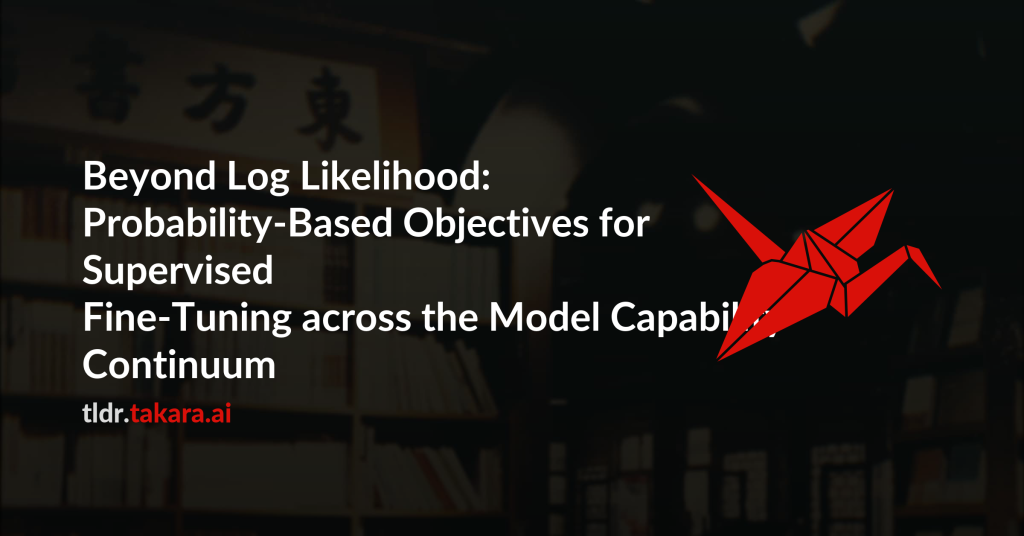Supervised fine-tuning (SFT) is the standard approach for post-training large
language models (LLMs), yet it often shows limited generalization. We trace
this limitation to its default training objective: negative log likelihood
(NLL). While NLL is classically optimal when training from scratch,
post-training operates in a different paradigm and could violate its optimality
assumptions, where models already encode task-relevant priors and supervision
can be long and noisy. To this end, we study a general family of
probability-based objectives and characterize their effectiveness under
different conditions. Through comprehensive experiments and extensive ablation
studies across 7 model backbones, 14 benchmarks, and 3 domains, we uncover a
critical dimension that governs objective behavior: the model-capability
continuum. Near the model-strong end, prior-leaning objectives that downweight
low-probability tokens (e.g., $-p$, $-p^{10}$, thresholded variants)
consistently outperform NLL; toward the model-weak end, NLL dominates; in
between, no single objective prevails. Our theoretical analysis further
elucidates how objectives trade places across the continuum, providing a
principled foundation for adapting objectives to model capability. Our code is
available at https://github.com/GaotangLi/Beyond-Log-Likelihood.

